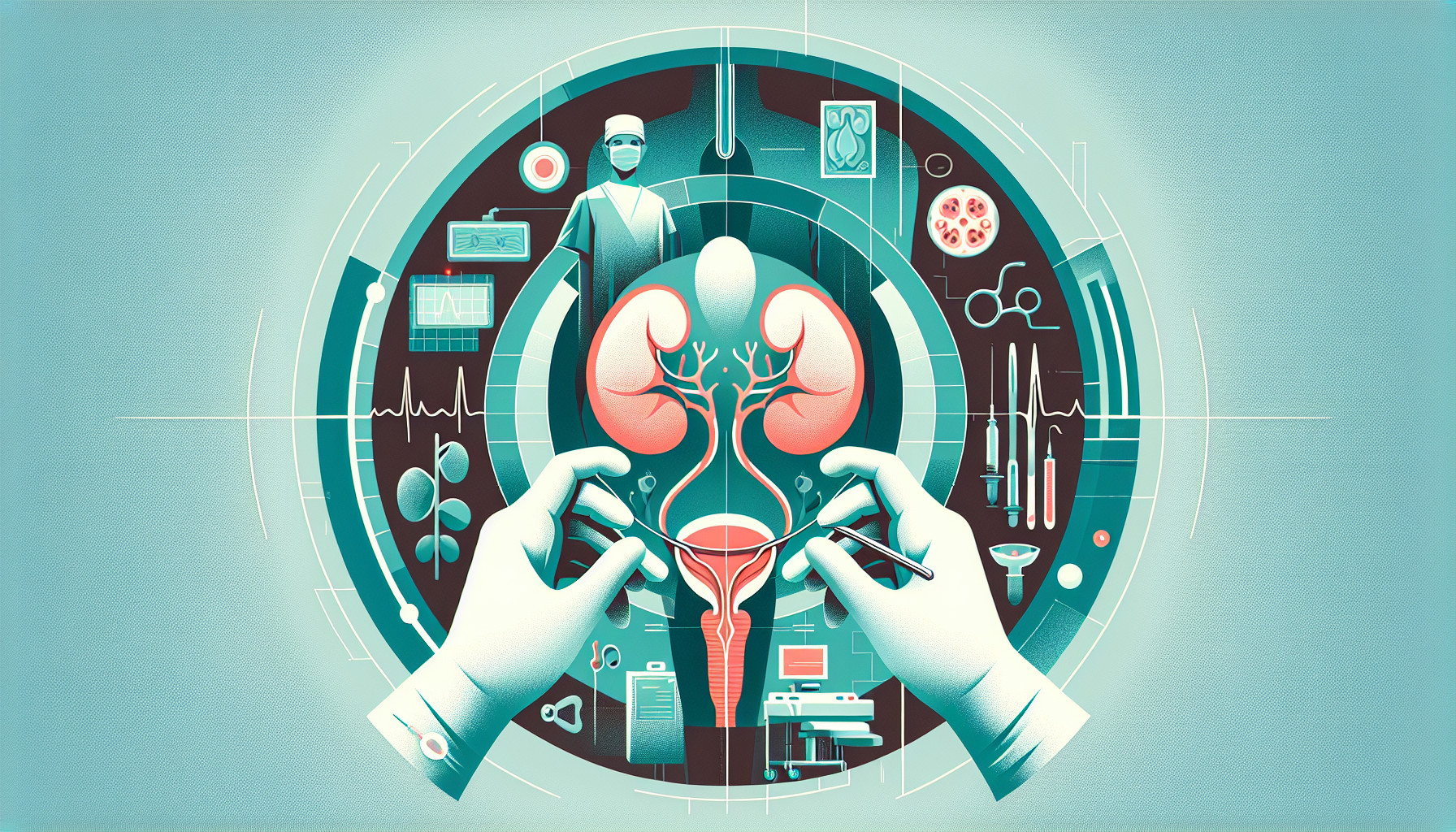Our Summary
This research paper is a detailed review of the medical literature on bladder injuries that occur accidentally during obstetric and gynecologic surgeries. The researchers were particularly interested in understanding how long a catheter should be left in place after such injuries and what surgical techniques and materials are best for minimizing complications.
They sifted through 2175 articles and selected 26 relevant studies involving 595 patients who experienced bladder injuries during procedures like Cesarean sections and hysterectomies. They found that most of these injuries were identified during the surgery itself.
Their analysis, however, was not able to establish a clear link between the duration of catheterization and the number of complications occurring after bladder injury repairs. They also found that complications were rare overall, irrespective of the surgical approach used to repair the bladder injury.
In conclusion, though the study did not find a definite answer regarding the optimal time for catheterization after bladder injury, it reassured that post-injury complications are relatively rare. More studies are needed for a more definitive conclusion.
FAQs
- What was the main focus of the research on bladder injuries during obstetric and gynecologic surgeries?
- Did the researchers find a clear link between the duration of catheterization and the number of post-surgery complications?
- What conclusions did the study reach about the rate of complications after bladder injury repairs?
Doctor’s Tip
One helpful tip a doctor might tell a patient about bladder surgery is to follow post-operative care instructions carefully, including proper catheter care and monitoring for any signs of infection or complications. It’s important to stay in close communication with your healthcare provider and report any unusual symptoms or concerns promptly. Remember to rest and allow your body time to heal properly after surgery.
Suitable For
Patients who are typically recommended bladder surgery include those who have experienced bladder injuries during obstetric and gynecologic surgeries such as Cesarean sections and hysterectomies. Bladder injuries can occur accidentally during these procedures, leading to the need for surgical repair. In some cases, bladder surgery may also be recommended for patients with conditions such as bladder cancer, bladder stones, urinary incontinence, or bladder prolapse. It is important for patients to consult with a healthcare provider to determine if bladder surgery is the appropriate treatment option for their specific condition.
Timeline
Before bladder surgery, a patient may experience symptoms such as frequent urination, pain or discomfort while urinating, blood in the urine, or difficulty emptying the bladder. They may undergo diagnostic tests such as a cystoscopy or imaging studies to confirm the need for surgery.
After bladder surgery, the patient may experience pain, discomfort, and swelling in the surgical area. They may need to use a catheter to drain urine from the bladder for a period of time to allow the surgical site to heal. The patient will be closely monitored for signs of infection or other complications, and will likely need to follow up with their healthcare provider for regular check-ups and monitoring of their recovery progress.
What to Ask Your Doctor
Questions a patient should ask their doctor about bladder surgery based on this research paper could include:
- How will you monitor for potential bladder injuries during my surgery?
- What are the potential complications of bladder injury during surgery?
- How long do you typically recommend leaving a catheter in place after bladder injury repair?
- What surgical techniques and materials do you plan to use for repairing my bladder injury?
- How common are complications after bladder injury repair, based on your experience?
- Are there any specific post-operative care instructions I should follow to reduce the risk of complications?
- What is the likelihood of long-term effects or complications from a bladder injury during surgery?
- Are there any additional tests or follow-up appointments I should schedule after my bladder surgery?
Reference
Authors: Jensen AS, Heinemeier IIK, Schroll JB, Rudnicki M. Journal: Acta Obstet Gynecol Scand. 2023 Dec;102(12):1608-1617. doi: 10.1111/aogs.14641. Epub 2023 Aug 8. PMID: 37552010
